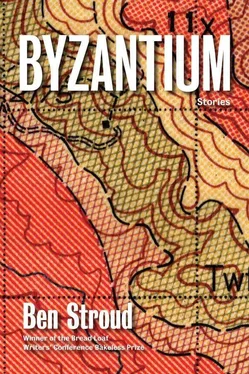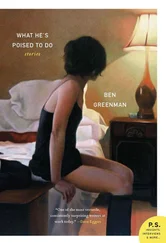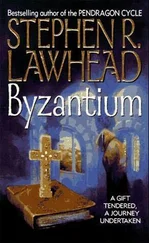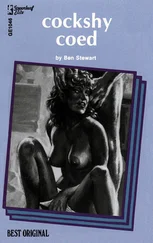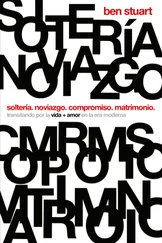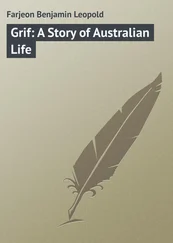“It’s not that,” Burke said, looking up at her. “I’m quite over that.”
The usual stoniness returned to Fernandita’s face and she left the room, but in a moment she had returned. “I almost forgot,” she said. “A boy brought this.” She handed Burke a message. It was from Galván, and he’d written only three words: Body not found.
LATER THAT NIGHT, once full darkness had fallen, Burke dressed in trousers and a shirt made of old sailcloth and left his rooms to walk through the city. It was all he could think to do. He hoped that, passing among slaves, visiting their night haunts, he might hear rumors — of Marcita, of the murdered slave, of the others the don mentioned had gone missing. He went to the abandoned lots and shadowy groves where slaves were known to gather for their dances and their guinea magic, but each one he found deserted. The only slave he saw that night he stumbled on by chance — a fresh bozal standing outside a tavern, far from any of the slaves’ usual places. He seemed agitated; he was staring in through the tavern’s window at white men eating and drinking, gnashing his lips.
Burke approached him. “What’s the matter?” he asked.
The slave turned to him. Tribal scars ridged his forehead and shoulders. His front teeth were filed into points, and his breath stank of aguardiente. “I lost my little Anto,” he said.
Just then the tavern-keeper came out and waved a stained rag at the two of them. “Bah!” he said. “Go on! Get moving!” He snapped the rag at the slave and then at Burke, who, as he leapt back, bumped into a creole passing by. Without breaking stride, the man struck him with his gold-tipped cane, then continued on down the street, paying him no more attention. Burke recognized the fellow — Maroto? Sánchez? — had even shaken his hand at a salon where he’d been invited to play cards and share stories about his cases. He wanted to shout, but by the time he’d overcome his shock at being struck the creole was gone, disappeared into the night. He turned to find the slave with the pointed teeth, but he was gone, too.
After an hour of more wandering, Burke returned to his rooms, lit a lamp, and sat at his desk. The slaves were frightened of something — he could see that in their emptied gathering places and in the eyes of the bozal. But what was the connection to Marcita’s disappearance? He thought of the head found outside the city, and of the street where Marcita disappeared. He could sense a tie between them, but his brain failed to take hold of it. Outside, the sereno called the second hour of morning. Burke took a cigarette from the canister on his desk. Fernandita had just restocked them with the don’s money. He struck a match, brought the light to the cigarette tip, then stopped. The labels in Marcita’s room — the shop in the Calle O’Reilly with the too-high prices — the cigarette factory next to the field where the slave was found. As each piece clicked into the next the match burned down and singed his fingers.
“Fernandita!” he shouted. “Fernandita!”
After the fourth shout she emerged from her closet, cursing and blinking.
“Go to the captain-general’s palace. He’ll be up, playing cards. Give him this message.” As Burke spoke, he quickly scrawled a letter telling the captain-general he was acting in the affairs of Don Hernán and asking him to send troops to the Pedroso y Compañia factory without delay.
“Why? What’s happening?” Fernandita looked about the room, as if someone else might be there.
“I’m not sure yet,” Burke said, the unlit cigarette still in his mouth. He shoved the letter in Fernandita’s hands. “But I’m going to find out.”
At that he left his rooms and ran through the dark streets until he found an idle volanta waiting near the cathedral. Dropping a handful of reales into the postilion’s palm, Burke yelled for him to drive to the Calle de la Soledad, outside the city. “Race the devil!” he shouted. Then he threw himself into the volanta ’s seat and the man took off.
THEY WENT PAST THE FIELD where the head had been found, then came to an empty lane just off the paseo — the Calle de la Soledad. The volanta pulled to a stop, and Burke got out, telling the driver to wait. The white macadam glowed in the light of the moon, and the air carried the scent of meat cooked over a fire. A night bird called from a far line of trees, but otherwise everything was still. Just up the lane stood the three factories Burke had seen earlier that day when he’d come to inquire about the murder. The snuff mill lay dormant and Burke stepped quickly, carefully past its low, silent hulk. Just beyond it was the yard of the cigarette factory. He halted. The factory’s yard was untended, overgrown with weeds and littered here and there with bottles. But light shone through the cracks in its shuttered windows, and, once he stilled his own breathing, Burke could hear the murmur of men talking.
He knew he should wait for the captain-general’s soldiers, but he couldn’t hold himself back. What were these men up to? Might Marcita still be alive, trapped inside? He crept to one of the windows and edged open a shutter and looked. In the factory’s single hall, where women once worked rolling cigarettes, a black-skinned body hung from a hook. It was being stripped by one man while two others worked at one of the old rolling tables, turning a grinder. The grinder jammed just as Burke’s gaze fell on it, and one of the men working it kicked at the table while the other shouted. The man stripping the body, cutting meat from the legs, whistled a tune, unbothered. Burke recognized him as the corpulent, red-haired tobacconist from the Gallitos shop.
It took Burke a moment to understand, and once he did he felt his reason trickle away. He couldn’t turn — the ghastly sight held him. Instead, without noticing, he leaned forward. His hand was still on the shutter, and it creaked. At that all three men looked up from their work. Burke let go of the shutter. It creaked again, and now they had seen him.
Burke tried to move, tried to run, but a lightness washed forward from the back of his skull. The men at the grinder had snatched knives from the table, and the one stripping the body had picked up an ax. Burke watched, paralyzed. They’d gone, and he could hear the cannibals’ footsteps, out of the factory now and on the grass. At last Burke beat back the lightness, pulled his feet from the morass that had gripped them, and ran. Just as he made it to the volanta, he heard the trumpets of the captain-general’s troops, and two cavalrymen appeared in the street. Burke didn’t care to see any more. Bent over in the volanta ’s seat, he heaved, shut his eyes, and ordered the driver to take him home.
“IN THE SAUSAGE!?” Don Hernán repeated, his face green. He was sitting in Burke’s bedchamber, slumped in a cane chair. “Oh, my poor cinnamon! To think I—” He stopped. It seemed for the moment he could not bring himself to mention the French sausage again.
Burke lay on his cot. When he’d returned to his rooms he’d felt the lightness return, a sickness overtaking him, and he’d not been able to stand or sit. Now, morning having come, he was explaining his findings to the don, detailing how the three men had roamed the outskirts of the city capturing slaves to butcher. Fernandita stood by the door folding and refolding a cleaned sheet as she listened.
“The shop was a ruse. That’s why the price on the cigarettes was so high, to keep people away. Marcita was unlucky. She must have wandered in, looking for new labels for her collection, and that’s when they took her.”
Outside a bell tinkled, a procession of priests bringing the viaticum to a dying man.
Читать дальше
